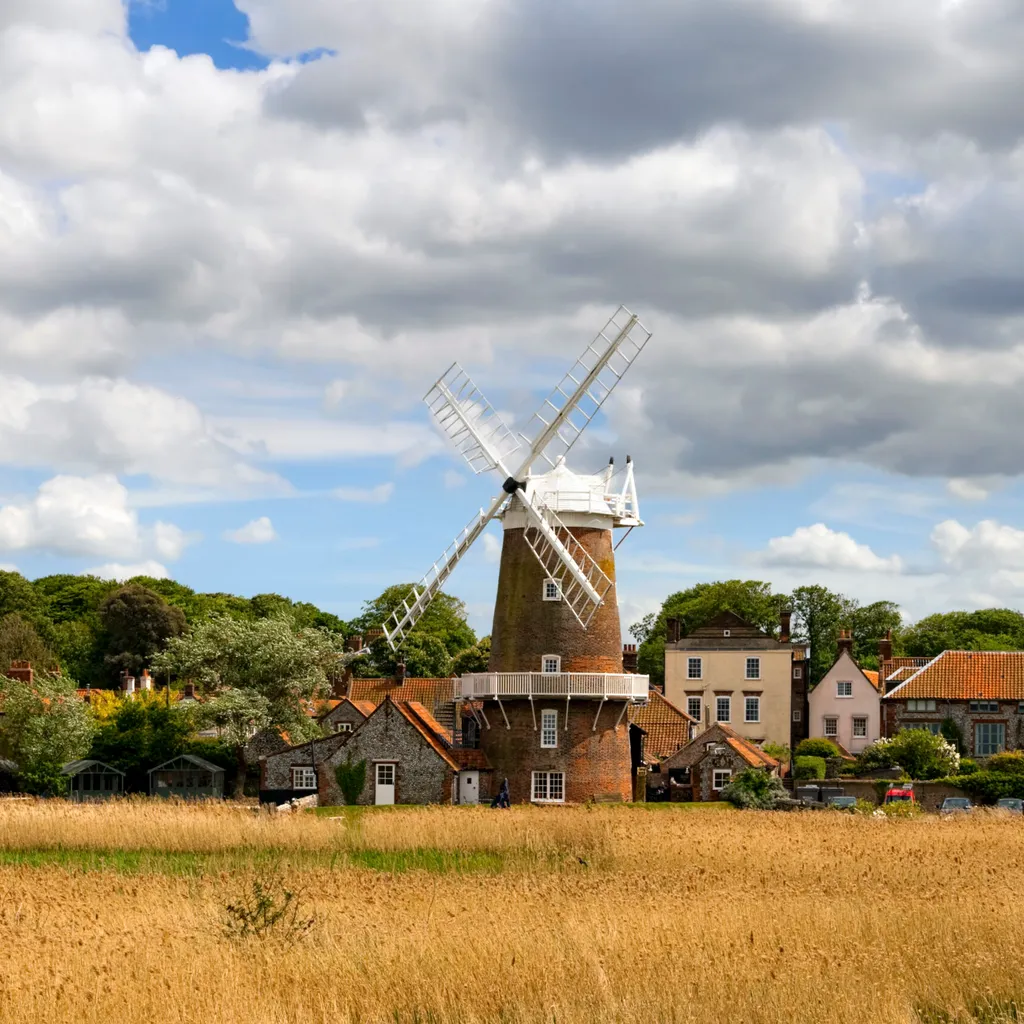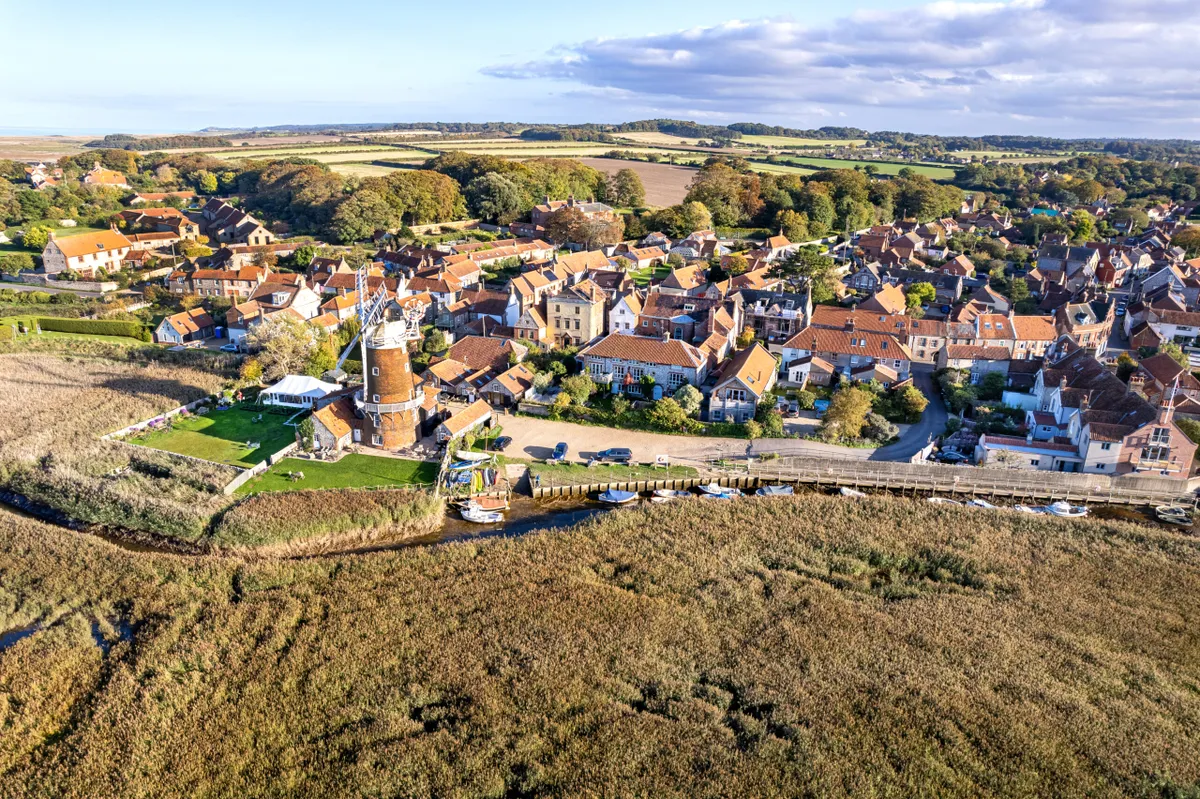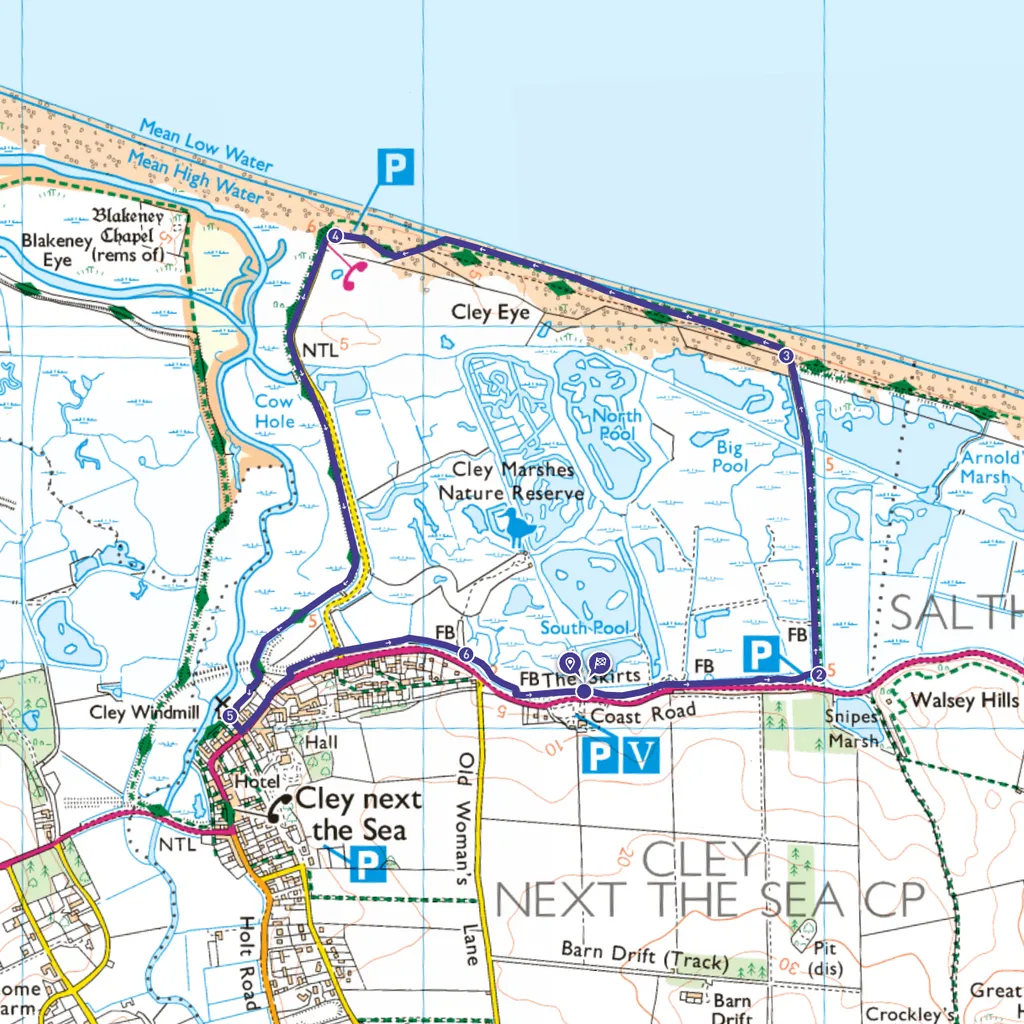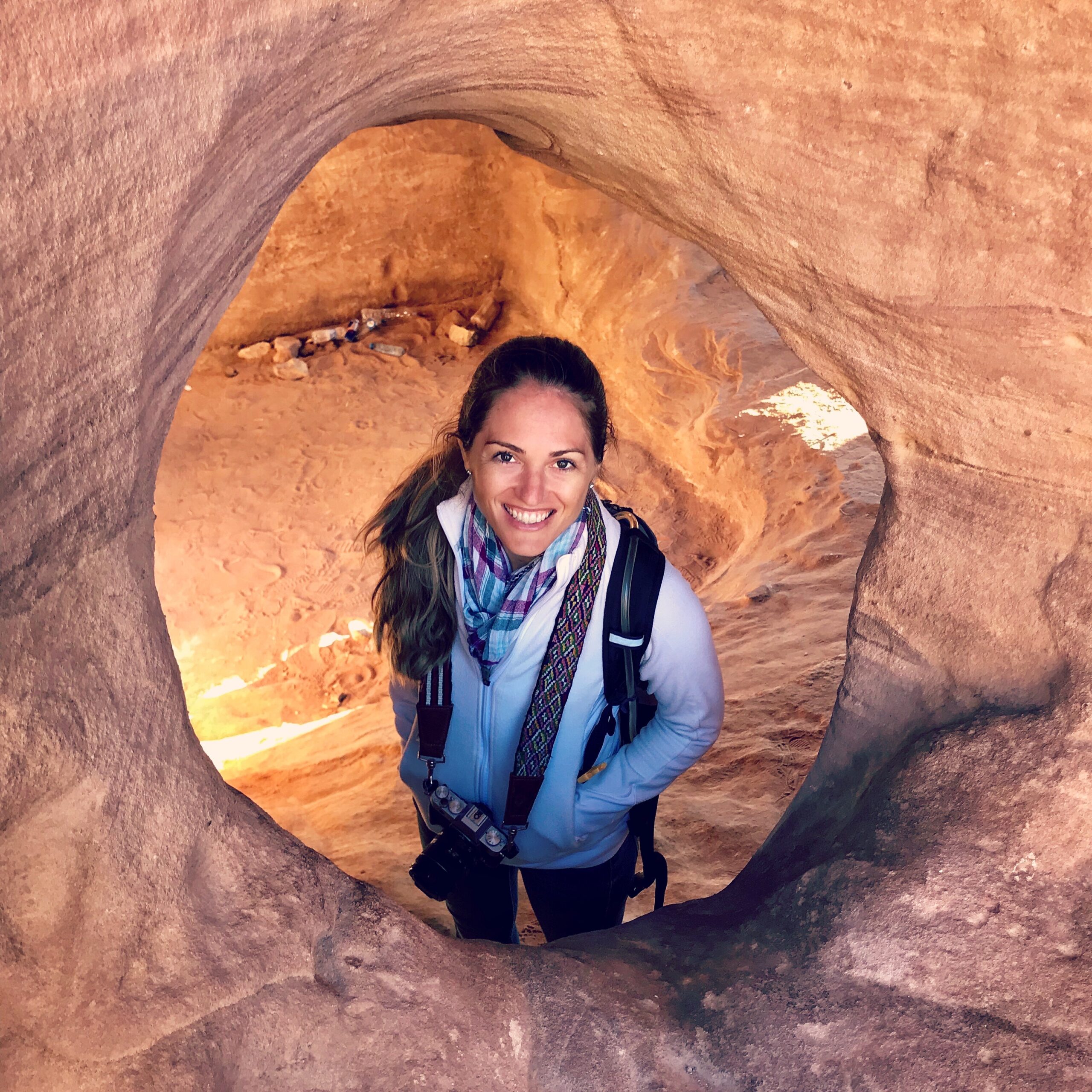Norfolk’s wetlands are a hive of activity – and nowhere is perhaps more spirited than Cley Marshes, part of the Norfolk Coast AONB, where a cacophony of birdsong elevates the flat landscape.
After being acquired in 1926, it formed the blueprint for nature conservation across the country. The result is a haven for some of the UK’s most exciting species. In winter, wildfowl descend in their thousands, including pink-footed and Brent geese.
This easy 3.5 mile circular route is the best way to observe them, with flat paths leading you through towering reed beds, saline lagoons and a classic Norfolk shingle beach.
With several hides and plenty of nearby pubs and cafes for refuelling, it’s an ideal family day out.

Cley Marshes walk
3.2 miles / 5.1km | 2 hours | easy | 5m ascent
1. Start
From the visitor centre, take the footpath between the car parks. Cross the road and turn right towards Bishop’s Hide and East Bank, turning left at the signpost to the hide (beware, the sandy trail can become boggy in wet conditions). Here, you’ll be greeted by interspersed flocks of waders, waterfowl and more, all enjoying the food and shelter of the freshwater lagoon and surrounding reed beds. Keep an eye out for Eurasian lapwings, wigeons, and snipe.
2. Big Pool
Back on the main path, head up the steps and left along the East Bank with sweeping views over the reed beds, grazing marshes and out to sea. Keep your eyes on the reed-flanked waterways and scrapes for sun-bathing cormorants and striking shelducks.
3. North Sea
Head left along the shingle beach and follow the shoreline. Don’t be fooled by what looks like a sea of bobbing herring gulls – there are likely razorbills and gannets among them, putting on a show as they dive for fish.
4. Cley Marshes
At the beach car park and information point, take the raised footpath signposted for Cley next the Sea. Wind your way back towards the town and windmill, keeping an eye (and an ear) out for snow bunting and linnets flirting among the reed beds as well as marsh harriers hovering overhead.

5. Cley next the Sea
As the path forks, keep to the left. Head through the pedestrian gate, join the roadside path briefly, then take the bridge over the stream back into the reserve. Follow this path running parallel to the row of houses.
6. Trio of hides
Opposite the last house, turn left towards the central hides and head into the marshes along the boardwalk. Here a trio of hides cover 180-degree views of the lagoons and scrapes, which provide food and shelter for overwintering ducks and geese, including migratory Brent geese arriving from Siberia and Pink-footed geese from Iceland.
Other species you might spot include golden plover, bittern, shoveler, and water rail. Rejoin the path heading back to the visitor centre and car park.
Cley Marshes map
Cley Marshes walking route and map

Useful information
Starting point
Norfolk Wildlife Trust Nature Cley and Salthouse Marshes visitor centre, NR25 7SA. £5 entry gives you free parking and access to bird hides. The Coasthopper bus service stops outside the reserve.
Terrain
The flat route includes a mix of sandy trails, raised boardwalks, and shingle beach.
Map
OS Explorer 251
Eat/drink
The visitor centre cafe serves light bites and drinks with open reserve views, or head to Two Magpies Bakery in nearby Holt.
Stay
Cley Windmill offers a unique B&B option with wonderful views of the marshes.
Feathers in Holt has 14 newly refurbished bedrooms and 10 Lawn Rooms.

